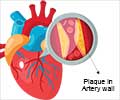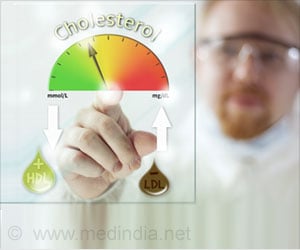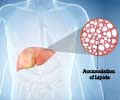Hypertriglyceridemia is a condition that causes high triglyceride levels in the blood. Autoantibodies may be a new cause for high plasma triglycerides.

- Elevated levels of triglycerides in the blood cause hypertriglyceridemia or high plasma triglycerides.
- Gene mutations regulating the triglyceride metabolism can be a cause for high plasma triglyceride levels. However, the cause of the condition is poorly understood.
- Scientists find that autoantibodies against GPIHBP1 (glycosylphosphatidylinositol anchored high-density lipoprotein binding protein 1) may be a new cause for hypertriglyceridemia.
Dr. Stephen Young, UCLA cardiologist and molecular biologist, along with his colleagues from David Geffen School of Medicine at UCLA, said, that the newly discovered syndrome called “GPIHBP1 autoantibody syndrome” may help to understand hypertriglyceridemia.
"It's important to recognize this new syndrome because it is life threatening and potentially treatable," Young said.
New Cause for Hypertriglyceridemia
In the new research study, Young, Beigneux, Fong and Katsuyuki Nakajima, Professor at Gunma University in Japan, discovered that a group of people whose GPIHBP1 (glycosylphosphatidylinositol anchored high-density lipoprotein binding protein 1) couldn’t transport lipoprotein lipase into the capillaries were people who did not have any genetic mutations.
But, they found that these people had autoantibodies against GPIHBP1 which may keep it from binding to lipoprotein lipase.
Six people were identified with autoantibodies against GPIHBP1. The scientists diagnosed four of those six people with an autoimmune disorder to cause the body to develop autoantibodies against a variety of proteins.
Out of the six people, one became pregnant.The autoantibodies crossed the placenta and entered the baby’s circulation. This increased the triglyceride levels and gradually returned to normal with the disappearance of mother’s autoantibodies.
Dr. Michelle Olive, deputy chief, atherothrombosis and coronary artery disease, National Heart, Lung and Blood Institute, funder, said, "The researchers have not only discovered a new disease, but their findings have suggested that the disease is treatable."
"These findings are the result of years of NHLBI-funded studies of the molecular mechanisms of action of GPIHBP1 and are an excellent example of how basic science can lead to scientific advances with direct clinical implications."
What are Triglycerides?
Triglycerides are lipid molecules (fat) present in the blood. They are stored in the fat cells and are later released by the hormones for energy between the meals.
Hypertriglyceridemia condition occurs when there is a high amount of triglycerides than the required levels. High triglyceride levels may range between 200-499mg/dL.
How to Control High Triglyceride Levels?
Some of the lifestyle measures that could control high plasma triglyceride levels include:
- Cut back your calories
- Avoid eating sugary and oily foods
- Do regular exercises like brisk walking, swimming
- Limit alcohol intake
- Young MD et al., 'Autoantibodies against GPIHBP1 as a Cause of Hypertriglyceridemia', The New England Journal Of Medicine (2017);DOI: 10.1056/NEJMoa1611930
- Triglycerides: Why do they matter? - (http://www.mayoclinic.org/diseases-conditions/high-blood-cholesterol/in-depth/triglycerides/art-20048186 )
Source-Medindia












